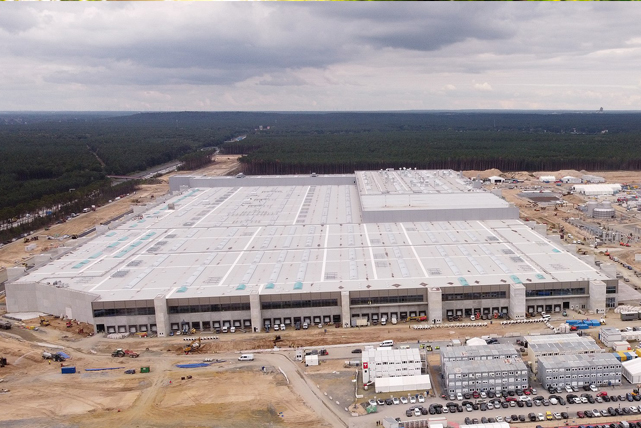Conflicts in Planning: Major Projects and their Potential for Institutional Change
Research department: Politics and Planning
Project Leader within IRS: Dr. Manfred Kühn
Project Team: PD Dr. Matthias Bernt Prof. Dr. Kristine Kern Dr. Georgia Alexandri PD Dr. Wolfgang Haupt
Duration: 01/2022 - 12/2025
Problem: Dealing with protests and conflicts
In recent times, globalisation, migration, post-fossil transformation and the lack of affordable housing are generating new protests and conflicts. As a consequence, spatial planning is increasingly confronted with the task to offers conflict resolution. Political and planning stakeholders are, however, faced with a dilemma when dealing with these conflicts: on the one hand, there are confronted with demands to speed up planning procedures, partly in order to achieve public welfare goals such as climate protection, the energy transition and housing construction. On the other hand, they face demands for more public participation. However, "more participation" often does not help to pacify conflicts, but can instead exacerbates conflicts. The search for consensus, the negotiation of compromises and the pacification of conflicts through participation reach their limits. In planning theory, the model of communicative planning with its one-sided consensus-orientation is therefore increasingly put into question and more conflict-orientated approaches such as agonistic pluralism are attracting increasing attention.
Research approach
The research project focuses on two theoretical approaches in political and planning science:
Agonistic pluralism
According to a theory developed by Chantal Mouffe, conflicts are not only legitimate, but also productive because they enable disputing of opinions in pluralistic democracies. According to this theory, it is important to transform antagonistic battles between enemies into agonistic disputes between opponents and to create a "conflictual consensus". A prerequisite for the taming of antagonistic conflicts is the acceptance of rules of conflict resolution by the opponents. Institutionalized rules of participation play a key role here.
Multilevel governance
Learning on debates in political science research, the lead project investigates how conflicts are resolved within an increasingly complex multi-level governance system. Here we refer to approaches of “multi-level governance” and “rescaling” which emphasize the vertical and horizontal fragmentation of power which is not only shifted upwards and downwards, but is also distributed among a large number of state and non-state actors. The dynamic interweaving of different spatial levels also includes local and regional actors and their strategies at federal, EU and international levels.
The project pursues three main research questions:
1. to what extent are antagonistic conflicts between politics, administration, investors and citizens* transformed into agonistic conflicts?
2. how do large-scale projects influence existing forms of governance in politics and planning? In what way do they have a disruptive effect?
3. what institutional change in politics and planning is brought about by large-scale projects?
Explorative case study: The Tesla Gigafactory in Brandenburg, Germany
The focus is on an explorative case study on the establishment of the Tesla Gigafactory in Grünheide in the state of Brandenburg, Germany. The project is currently the largest industrial settlement in the Berlin-Brandenburg region. Here, conflicts emerge not only between the economic (investments, jobs) and the environmental demands (drinking water protection, drought). The establishment of Tesla is also justified with the argument of climate-neutral automobility, which ignites conflicts in the context of the post-fossil transformation. The case thus exhibits complex and multidimensional lines of conflict that encompass conflicts of interest, location, process and values. Analysing the conflict dynamics will be the subject of the accompanying research within the project. The openness and contingency of the processes in the selected case justify the explorative character of the case study. The proximity to the IRS site in Erkner provides excellent conditions for participant observation and expert interviews in the region.
The project uses the following qualitative methods of social research and combines policy and planning analyses:
- Document analyses (including local plans, protocols, reports, press releases)
- Media and press analyses (local, regional, state and national press, TV programmes in media libraries, social media, internet)
- Guideline-based expert interviews: with politicians, administration, civil society and business
- Comparative empirical case studies (e.g. with Stuttgart 21, international comparisons if necessary)
- Expert workshops: to discuss the generalisability of the case-specific findings
Photo: Michael Wolf, Penig, CC BY-SA 3.0, via Wikimedia Commons


